German brand Deuter is probably best known for its solid, robust and comfortable hiking packs, particularly all-season mountain stalwarts like the Guide series and the trekkers’ favourite Futura range.
The Aircontact Ultra represents a bit of a departure though. This is a backpacking rucksack intended to appeal to weight-conscious trekkers. Employing a stripped-down, streamlined design and lighter materials, it’s an evolution of the existing Aircontact Core and Lite packs, designed to shed further grams.
Let’s be clear though – despite the ‘Ultra’ moniker, this is no featherweight, frameless ultralight pack. It tips the scales at around 1.2kg, which is still double the weight of those minimalist styles. It also retains lots of familiar features, including an internal perimeter frame, classic lidded design, vented back panel and plenty of pockets. In many ways it still looks and feels like a classic trekking or backpacking rucksack.
Basically, we’d say this is a pack aimed at experienced but not fanatical backpackers who are ‘ultralight-curious’: keen to see what it’s like to go a bit lighter and faster, without going to the lengths of recording the weight of every bit of kit they own on a spreadsheet, or cutting their toothbrushes in half. It’s also a pack that looks well suited to three-season backpacking and wild camping trips, or for those aiming to beat the average times on longer trails like the Pennine Way or the Coast to Coast.
 LFTO
LFTOPros
- Lightweight yet still supportive
- Clean, streamlined design
- Quite sustainable
Cons
- Not as well padded as some rivals
| Weight | 1.27kg |
| Volumes | 35+5L (SL), 40+5L, 45+5L (SL), 50+5L |
| Materials | Bluesign-approved 235D nylon, 500D nylon (PFC-free) |
| Sizes | One size (adjustable) |
Design and features

Despite its lightweight build, the Deuter Aircontact Ultra looks fairly conventional. It’s a classic top-loading design with a floating lid that fastens with double buckles. You get an airy, padded mesh back panel with lumbar support and a wide hipbelt. It is structured around an internal perimeter wire frame and plastic framesheet, which provides rigidity and support. Deuter claims this design ‘traces the curvature of the spine and hips, allowing a 70-percent load transfer to the hip belt’.
It's available in two different capacities; a 40+5 litre version and a 50+5 litre version for men (or 35+5 and 45+5 ‘SL’ women’s fit versions). Experienced lightweight backpackers might get away with the smaller models, but we suspect most long-distance walkers will opt for the slightly larger volumes. Incidentally, the ‘+5’ refers to the expanding capacity of the drawcord collar, which can be overstuffed thanks to the floating lid if you need to accommodate a little extra kit.
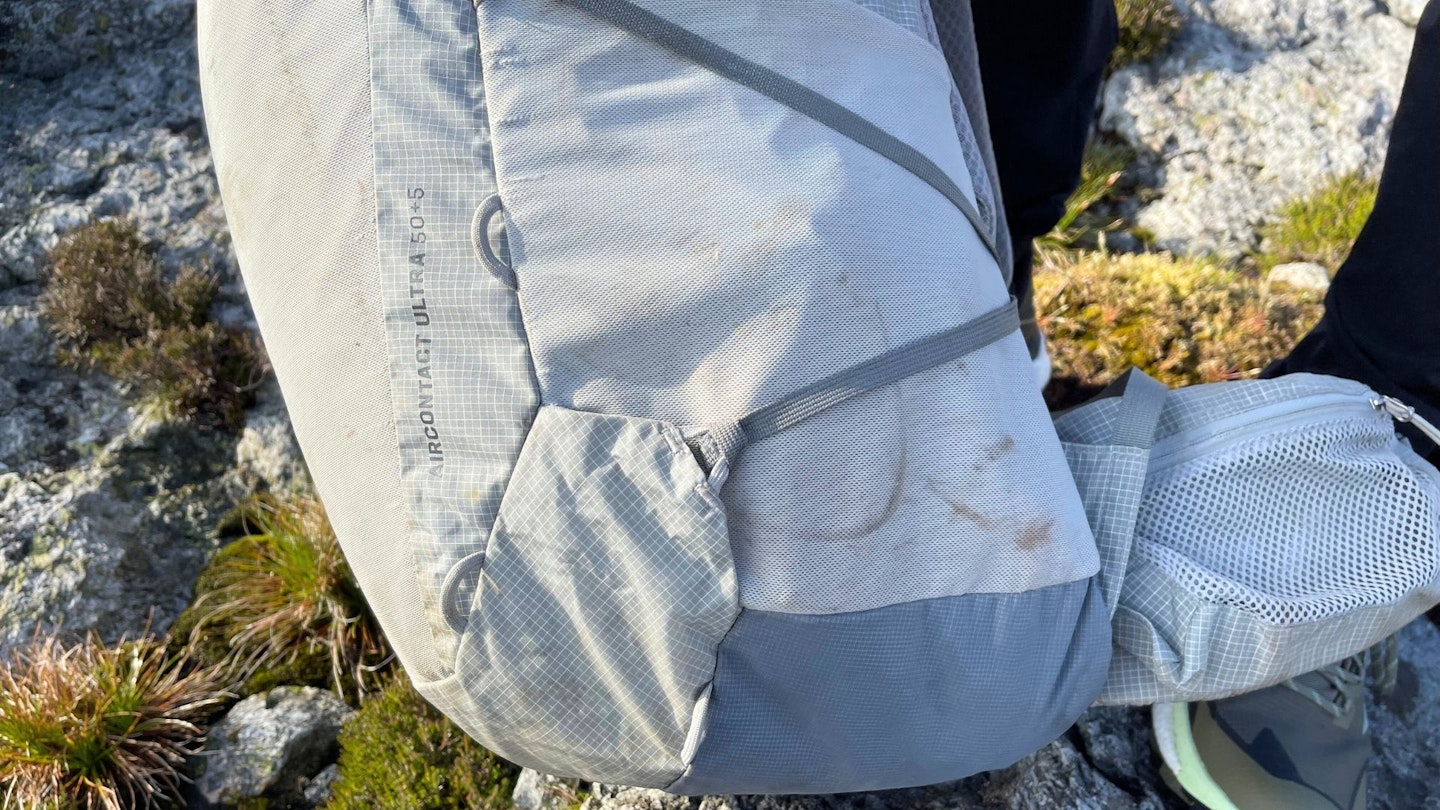
The main body fabrics are 235D nylon with a 500D textured nylon base. This is clearly where most of the weight savings come from, since these are lighter fabrics than most trekking packs – certainly compared to anything else in the Deuter range. The fabric is so thin as to be translucent; you can see your hand through it.
On test, however, they proved to be reasonably tough. For example, we made it from Edale to Kirk Yetholm on the entire length of the Pennine Way, carrying this pack for 16 days straight over 268 miles. By the end of it, the pack was grubby but mostly undamaged, though the stretch-mesh front and side pockets are certainly vulnerable to snags. Then again, that’s a drawback of almost all such mesh pockets.
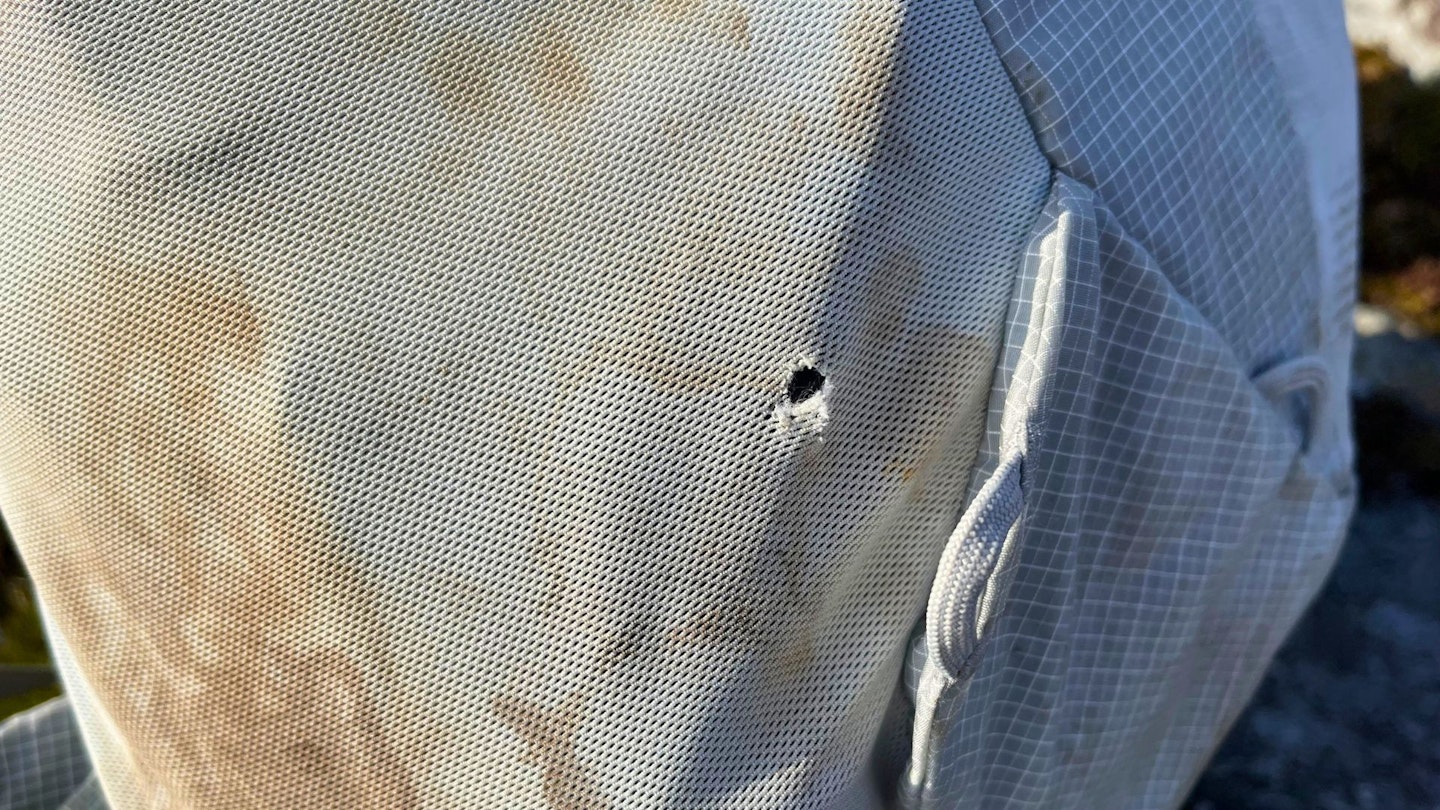
Harness and back system
The pack has an adjustable back system, but the effective range is fairly limited. In practice it’s best suited to back lengths between 18 and 20 inches. The shoulders straps adjust via daisy chains and metal carabiner-style buckles, which are hidden behind the back panel. It’s straightforward if ever so slightly fiddly, but once you’ve got the back length dialled in it shouldn’t need much further adjustment. Those metal components also feel very durable and reassuringly secure, especially compared to the plastic buckles or Velcro panels used by many rival manufacturers.
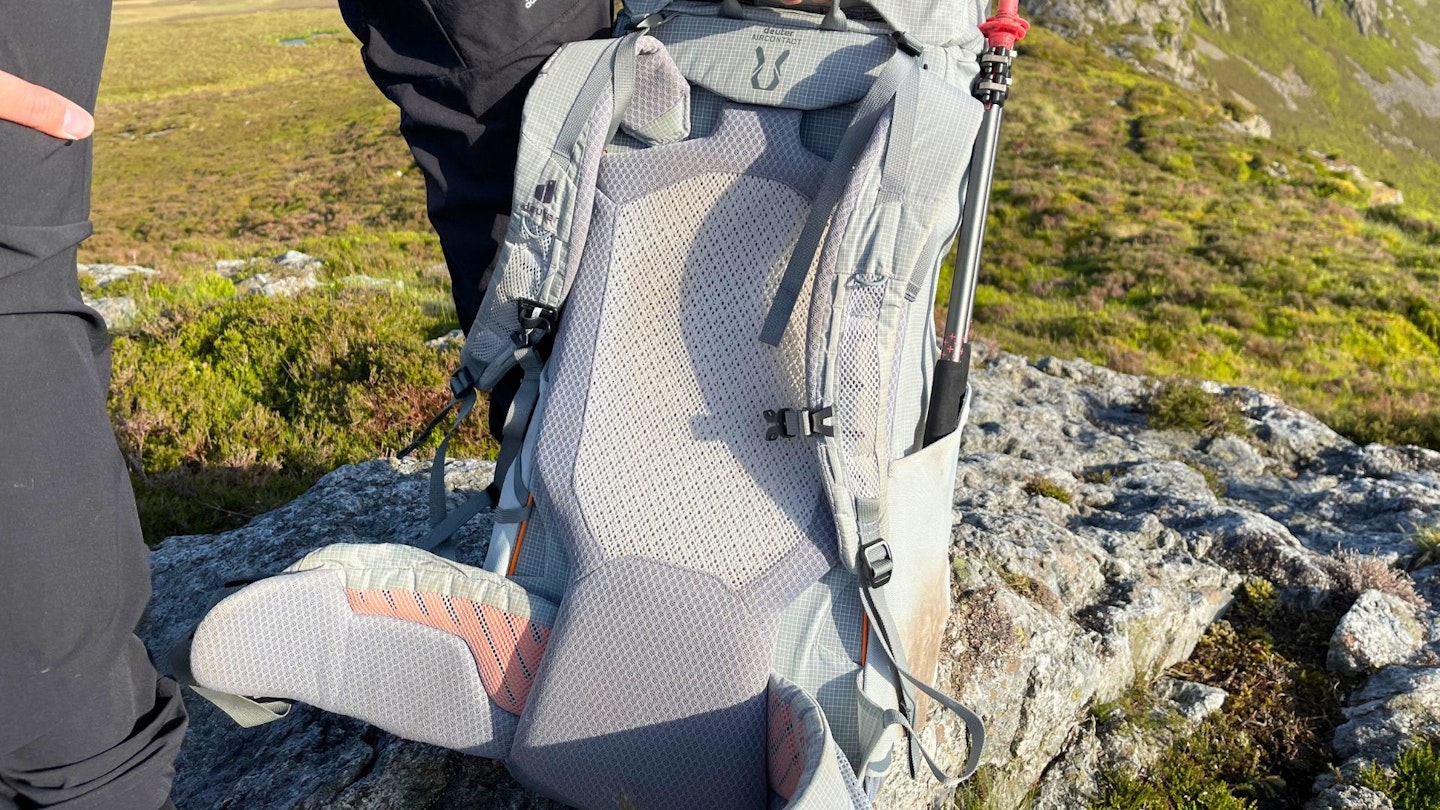
The shoulder straps are fitted with load-lifters and a slimline, adjustable chest strap. They’re lined with airy foam and mesh fabric. It isn’t the plushest but still provides a bit of padding and they are nicely sculpted. The hipbelt also moves with your torso rather than feeling like it’s pulling against you, since it sits behind a cushioned lumbar pad and has room to flex slightly. It also pulls in nice and tight with a practical single-pull webbing loop and sturdy plastic waist belt buckle. All in all, it’s a sensible and effective design.
Pockets and storage
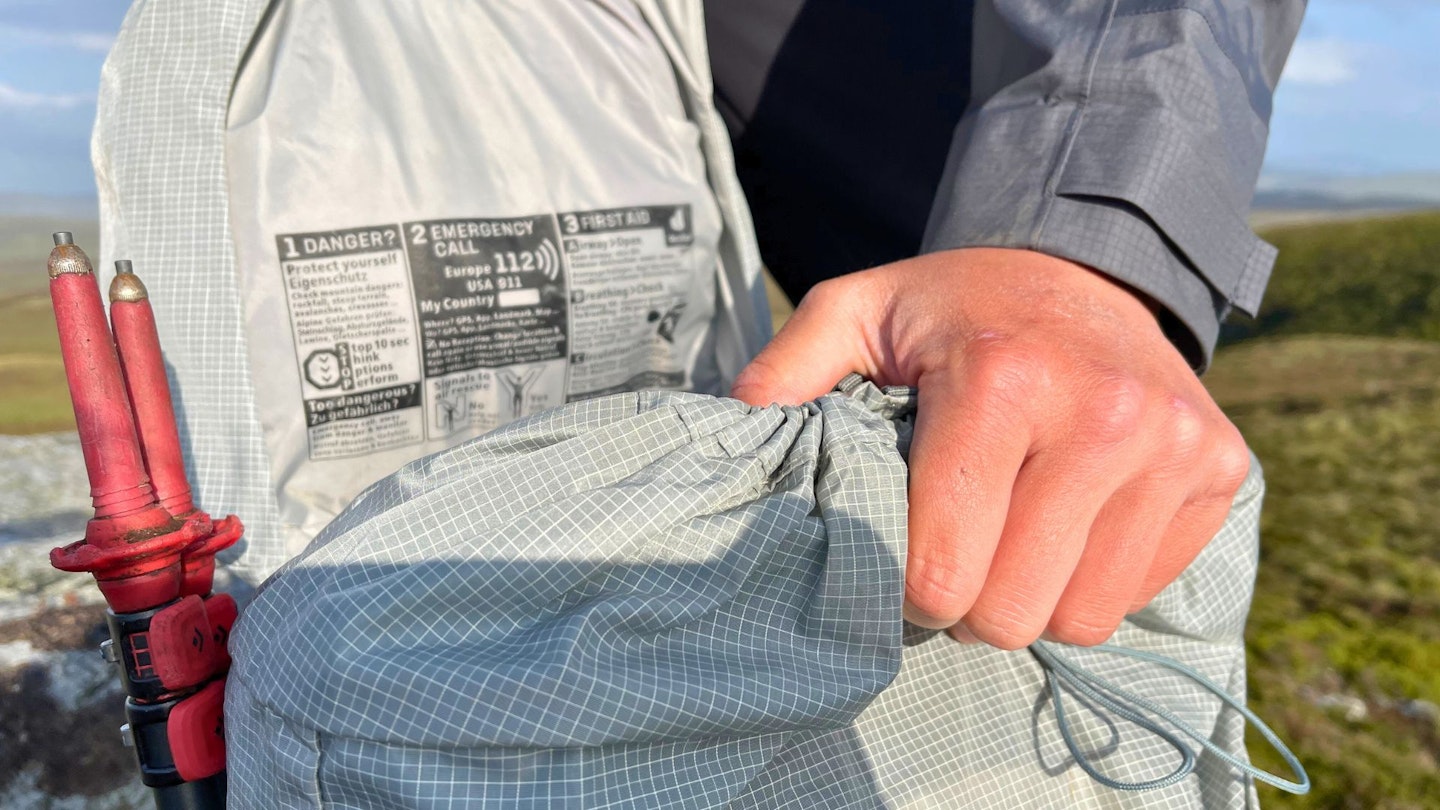
The main compartment is easy to access, with a simple drawcord closure protected by a floating, double-buckle lid. You don’t get side or bottom access as with some other packs though – again, a weight-saving measure. The lid has just the single outer pocket, though it’s a good size and is fitted with an internal key clip. Inside the main body is a sleeve for a water bladder and exit port, ensuring compatibility with a hydration system. Slightly annoyingly, there’s nowhere to thread the drinking hose on the shoulder straps though.
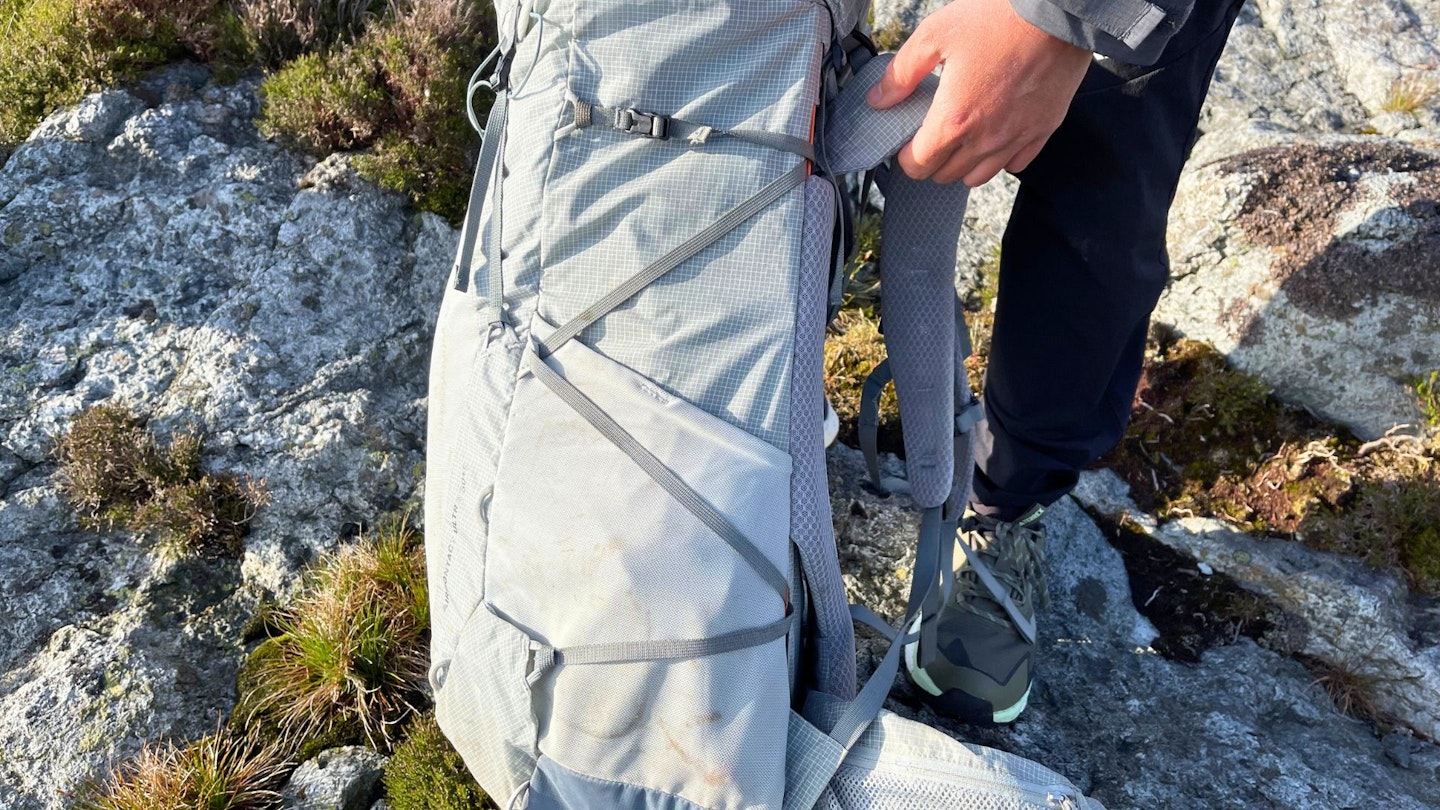
Zigzag compression straps on either side of the pack allow you to cinch in the load or carry extra gear. These are also removable, allowing you to shed further weight if desired. There’s no top, bottom or front compression, though fabric loops at the base would allow you to attach shock-cord or straps if you wanted to lash extra kit here.
Other on-board storage includes two stretch mesh side pockets and a big stretch mesh front ‘shove-it’ pocket, which is really useful for storing wet kit. There are also two zippered mesh fabric hipbelt pockets, though these are fairly small, not that easy to access and, being mesh, somewhat exposed to the elements. They’re fine for storing snacks but not so well suited to smartphones or sensitive electronics.
Performance and comfort
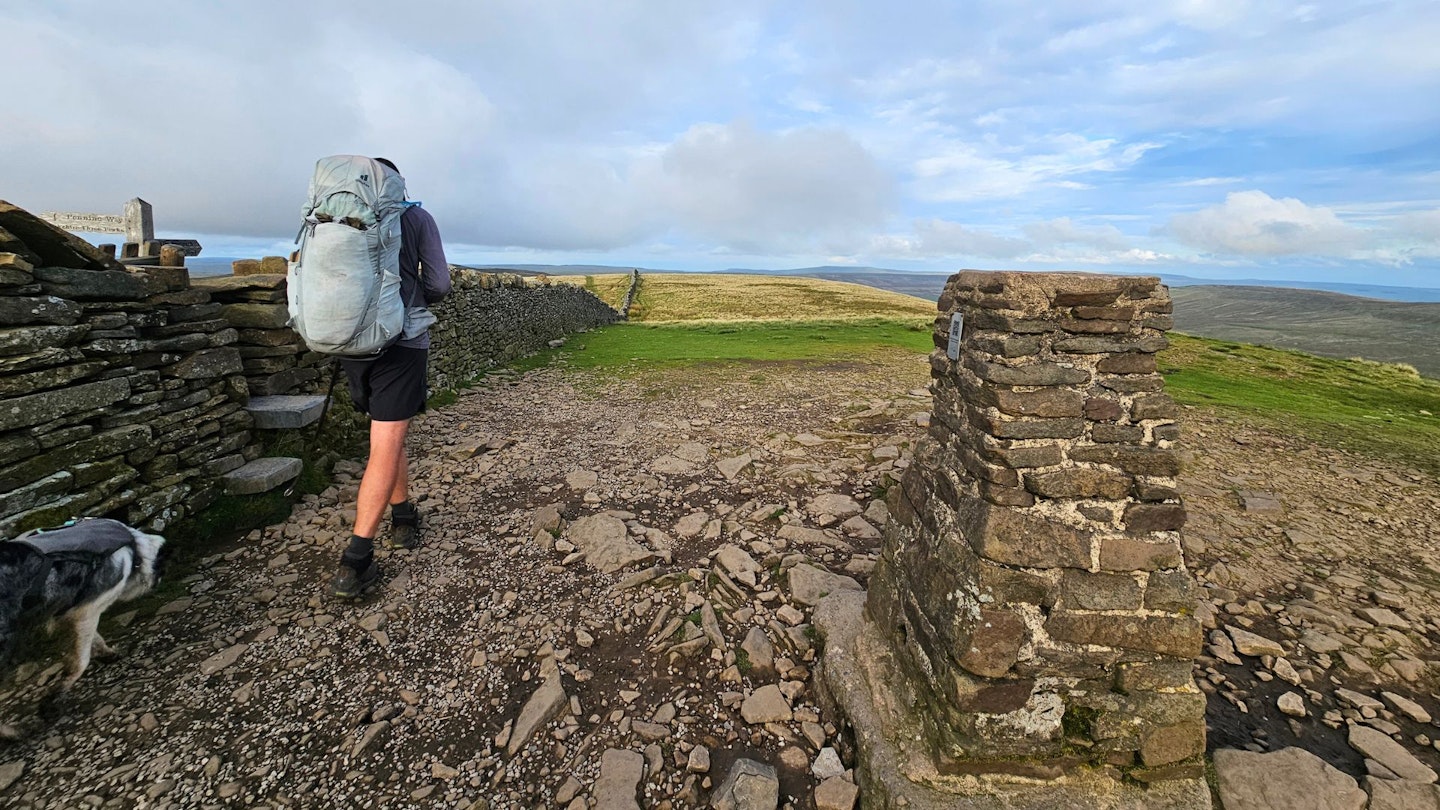
As we said up top, we carried this pack for 16 days, backpacking the entire length of the Pennine Way, a classic long-distance trail that runs up the spine of England. It performed excellently. It has a good volume-to-weight ratio but doesn’t sacrifice too many features or carrying comfort. The brand gives a recommended load of between 12 and 15kg, though on test we found it most comfortable at the lower end of that range. The back system, despite being relatively simple, offers a good balance between comfort, ventilation and stability. Although it’s not as effective as a fully suspended trampoline-style back panel, it still feels surprisingly cool and airy.
It's worth noting that this pack lacks a raincover, so if you expect to be hiking in wet weather, you’ll need to buy one separately to fit the pack or ensure all your kit is safe in either a rucksack liner, drybags or both. Of course, most experienced backpackers tend to do this anyway.
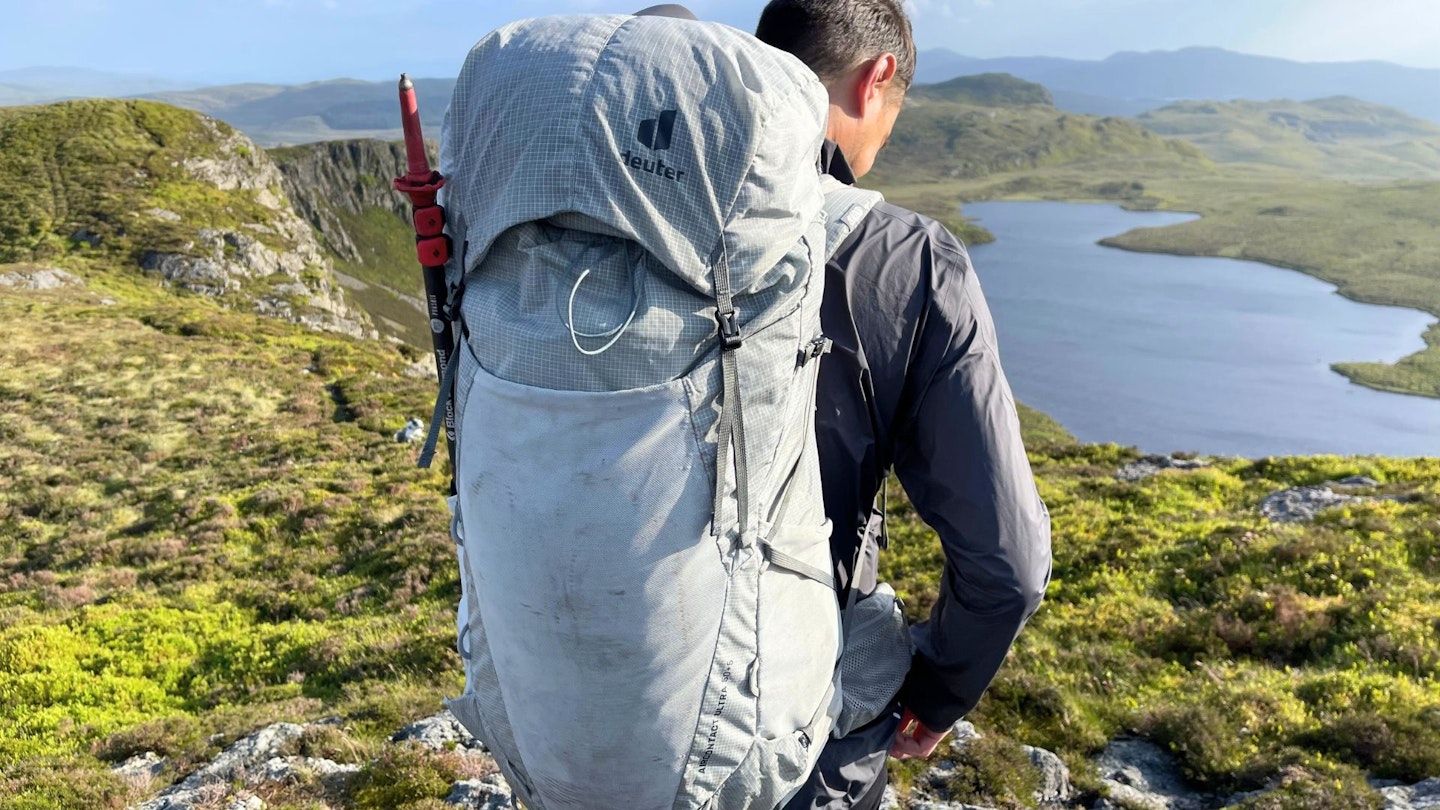
Our test sample came in the ‘tin-shale’ colourway. It’s a very light grey that seems to be the colourway of choice for a lot of technical ultralight gear. It looks great when new. Unfortunately, after a few days, the pack looked very grubby, having been spattered with mud and sheep dung. This makes it a somewhat impractical choice – the alternative options of blue for men and a light green for women would probably hide trail grime much better. Something to consider perhaps…
In summary, despite a couple of niggles, if you’re looking to save weight on your next long walk but aren’t quite sold on a minimalist or fully frameless pack, the Aircontact Ultra is a great option.
Sustainability
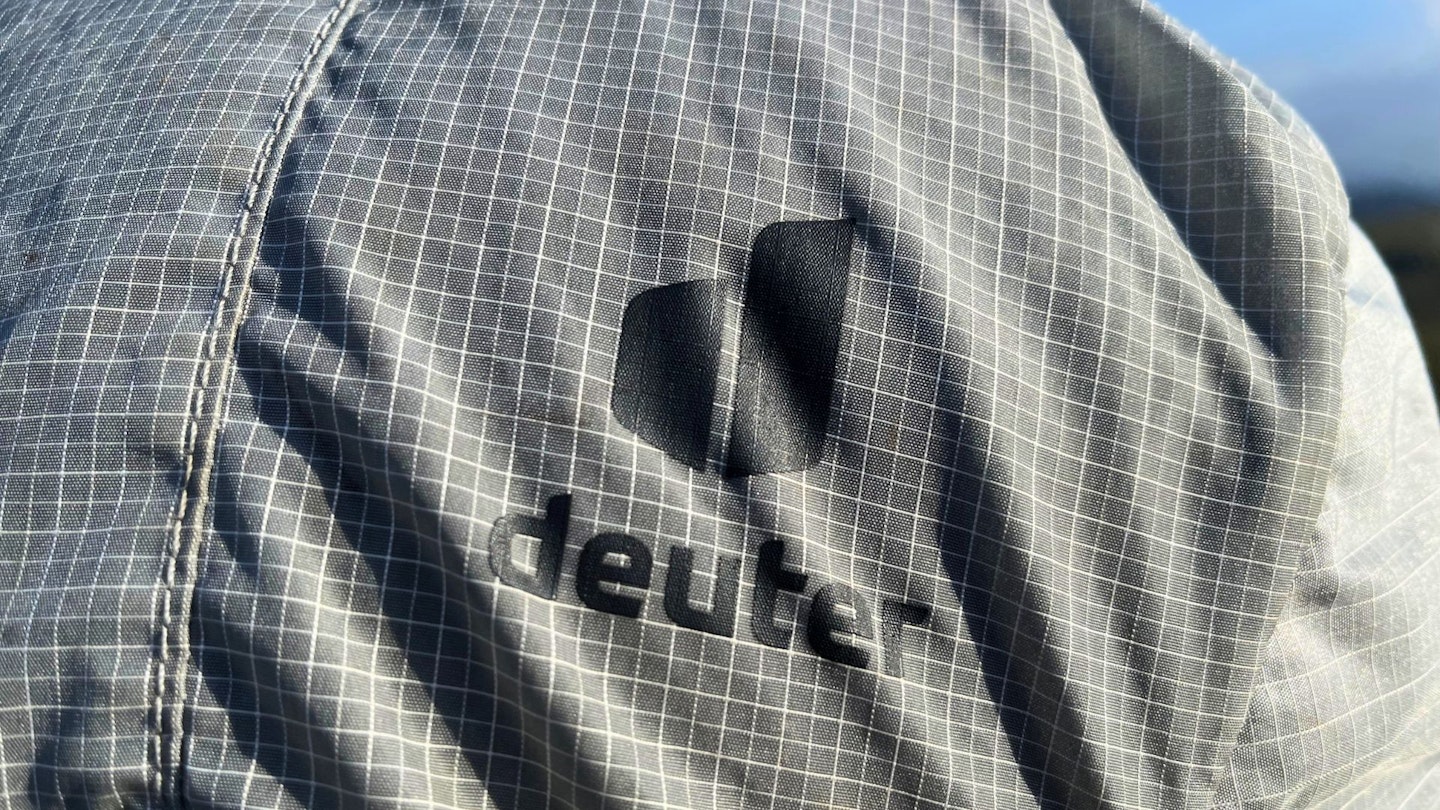
Deuter is generally considered to be one of the more environmentally conscious pack brands out there. As you might expect then, the Aircontact Ultra is PFC-free. Unfortunately, it uses no recycled materials, though the brand has partnered with an organisation called Climate Partner to offset its CO2 emissions. This means that the volume of emissions released by the production and transport of any ClimatePartner certified deuter product purchased (which includes this particular pack) will be compensated for through voluntary offsetting and targeted investment in social and climate protection projects.
Deuter is a bluesign partner, so the main fabrics and hardware used to manufacture the pack are bluesign approved. That is, they are produced in a way that supposedly “saves valuable resources and has a minimum impact on people and the environment”. It’s also a member of the Fair Wear Foundation.
Lastly, this pack is a Green Button certified product. This is a certification label for sustainable textiles in the German consumer market. It demands that mandatory standards are met to protect people and the environment, including a total of 46 stringent social and environmental criteria, covering a wide spectrum from wastewater to forced labour.
Price and competition

With an RRP of £240, this is not a cheap pack and that price point still means there’s plenty of competition to consider, although on specs alone the Aircontact Ultra remains a compelling choice. There aren’t too many fully framed, lidded 50+litre packs around that weigh 1.3kg or less.
However, alternatives that do or nearly fit these criteria include the Osprey Exos 48 and Eja 48 (also available in 58-litre capacities) or the new Osprey Exos Pro 55 and Eja Pro 55, which is well worth a look. Now that the Osprey Levity and Lumina have been discontinued, they’re probably the best lightweight framed backpacking rucksacks around. There’s also the Lightwave Fastpack 50 to consider, which comes from a smaller and less well-known brand but is an extremely well-built pack.
If you’re prepared to go lidless and sacrifice a fully framed design, the options suddenly open up hugely, including the Exped Lightning and genuine ultralight packs like the Atom Packs Atom+. If you’re prepared to import from the US, you could also look at ultralight cottage brands like ZPacks, Hyperlite, Gossamer Gear and Dan Durston. That approach represents a fundamental shift in attitude when it comes to backpacking though – get ready to start counting every gram and spending lots of money.
Verdict

The Deuter Aircontact Ultra 50+5 is a good option for ‘ultralight-curious’ backpackers looking for a streamlined, lightweight pack with a classic lid design, familiar features and decent carrying comfort for loads up to 12kg.
How we tested

The Deuter Aircontact Ultra 50+5 was tested for LFTO by Matt Jones. Matt is one of our regular gear testers on LFTO and our magazine, Trail, and carried the Deuter Aircontact Ultra 50+5 on the 268-mile Pennine Way over 16 days.

